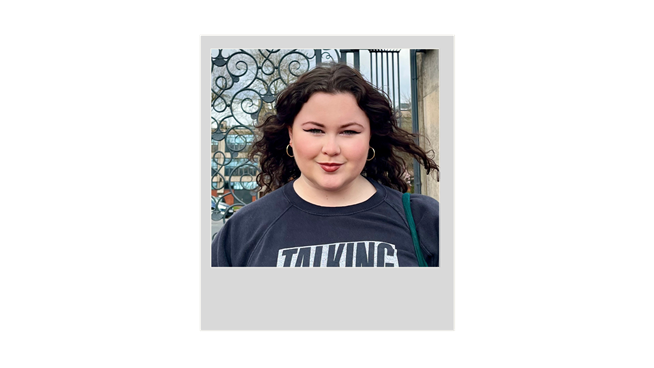It's time to talk… about dealing with depression at university
Hi, my name is Lorna, and I’m a second-year student at UoB. 
University is often painted as an exhilarating journey, a time of self-discovery, academic growth, and forging lifelong friendships, which it can be – those things do exist. However, beneath the excitement and allure of opportunity, many students struggle with difficult mental health.
I for one know exactly how this feels, as I am diagnosed with depression which has a significant impact on me, and everything else in my life. The reluctance to disclose these struggles to others because of fear of judgement, or the idea of being the ‘other’, can create barriers to forming amazing friendships, which can make the university experience difficult and isolating. However, in this blogpost I will explore how transparency, being open and honest, can be helpful (albeit scary), especially as self-care can look different for everyone.
Facing change and uncertainty
When I first came to UoB, I struggled with coming to terms with so much change in my life; how I had moved from the countryside to a massive industrial city, leaving behind my mum (it’s always just been me and her, so we’re very close), how was I going to make new friends, and the main concern, how was I going to cope?
I’ve always struggled with my mental health and am an extremely emotional person and a chronic over thinker. This has helped and hindered me multiple times in my life, but as of late I have come to accept that this is the way it is, and that's okay!
Hiding the real me
I feel at peace with myself now and am okay loving myself in all dimensions of my human condition. Despite this self-acceptance, coming to university did plague me with fear of stigma, judgment, or alienation which caused me to hide my mental health struggles behind a façade of being the productive and organised friend. I would put in efforts to disguise how I really felt, saying no to social events with an excuse that I was busy when really, I was crying silently in bed, as to not alarm my other flat mates to my deteriorating mental health. My mentality was that if I looked okay from the outside, and people only ever saw this aspect of me, that everyone would like me and I wouldn’t have to worry about being the downer in the group. The pressure to appear "fine" or "together" was, and still can be overwhelming, but I found there was formative peace in edging towards a more transparent front.
You’re not alone
Realising that I wasn’t the only one struggling, whether that be with academic stress, pressure, or a mental health disorder helped a lot to extinguish my fears of stigma and alienation.
University life is a pot of diverse individuals, with different stories and pasts, and you’re not as alone as you might think. When starting university, the absence of open dialogue deprived me of vital support networks and resources, so after some panicked searching for help, I found support through the University. Speaking with a professional in both my first and second year has been a really grounding practice for me.

The power of transparency
After some useful therapy, and realisation that at some point to form those real and authentic relationships, I would have to be honest with people about how I was feeling. I couldn’t continue being in a room of people and still feeling like the loneliest person there. For me, embracing vulnerability and opening up about my mental health struggles was a difficult but liberating experience. Sharing my vulnerabilities invited open conversation with my friends which helped foster a culture of empathy, understanding, and solidarity.

This transparency helped me form an inclusive understanding of self-care, that it was okay for me to cope in the ways that worked, even if they weren't the traditional ideas like taking a walk or having a cup of tea, but instead communicating well, setting boundaries, and sometimes just having a good cry.
On reflection, studying philosophy did help in a way because I found huge solace and camaraderie in knowing that some of the most complex minds had been influential. This blogpost is one of the most transparent moments I’ve ever had concerning my mental health. I’m in no way am I suggesting you do something this public, but what I would like you to take away from this is that maybe there’s comfort in forming those real and authentic relationships where you are 100% honest with those around you on how you’re struggling.
For me transparency emerged as a guiding light, illuminating the path towards authentic connection and holistic wellbeing at university. I would be lying if I said I am no longer affected by my depression, some days it’s all encompassing, but by embracing vulnerability, I feel less isolated and more supported. I hope that through my transparency we can foster a culture that does the same, where struggles are authentically acknowledged and listened to, and self-care is celebrated in all its diverse forms.
No student should ever feel alone with their mental health here at UoB. Talking about how you're feeling isn’t easy, but it can be the first step towards better mental health. Whatever you're going through, big or small, we're here for you. Check out our full range of Mental Health and Wellbeing support on our Time to Talk? intranet page.